 | Mynoon F. Doro, born in Kaohsiung Taiwan, immigrated to Bay Ridge Brooklyn as a junior in high school with her family. She begins by sharing her experience with the English school system and the discrimination she faced when applying to college. Despite her guidance counselor’s doubts, Mynoon and her brother gained admission to Columbia University where they both majored in engineering. She continues her story where she attends graduate school at Yale and begins working abroad for AT&T. Throughout her story, her father’s desire for her to get married is prevalent, leading to her marriage to “genius†of non-Asian ancestry. Mrs. Doro’s personal journey intertwines with her professional journey where she makes sacrifices in her home to become a notable woman in her industry both in the United States and in China. | 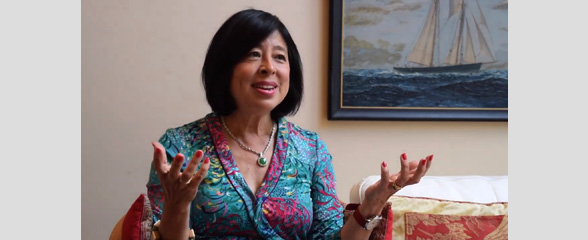 | This oral history is told by Alice Young, whose family’s multi-lingual, multi-cultural, academic, and diplomatic backgrounds and paths led her to become a pioneering, resilient, and globally oriented person. Her father and stepmother were linguists from diplomatic families and had formative impacts on East Asian languages and studies at so many academic institutions that Alice attended thirteen schools in twelve years. Sometimes, the Youngs were in places such as McLean, Virginia, where they were the only Asians, while in other periods, they experienced Hawaii hybridity and lived on a U.S. military base in Japan. Having spent her high school years building comfort and belonging with her communities in Hawaii, Alice stayed on the islands for her first year of college, then transferred to Georgetown on a scholarship. In her junior year, she joined Yale first class of women, entering an institution that had not only been all-male up until that year, but was also composed of primarily New England and prep school peers. At Yale, Alice became a student activist protesting the Vietnam War and co-founded the Asian American Student Association, which advocated for the recruitment of Asian American students and promoted Asian American studies. She returned to Japan on the Bates Fellowship to study under the Nobel Prize winning novelist Yasunari Kawabata. Desiring to make changes informed by her activism and caring about Asia, Alice made a difficult decision to choose to law over academia, attending Harvard Law School, where she co-founded the Harvard Women Law Student Association, was mentored by Professor Derek Bell, became involved with East Asian Legal Studies and the Black Law Students Association. Her pioneering law practice spanned many locations and extensive linguistic, cultural, business, and political knowledge and interests. After beginning her career at Coudert Brothers, she simultaneously became a partner and founded the New York office of Graham & James, and later joined Milbank Tweed. Alice also discusses her views on mentorship, the role of hard work in luck and serendipity, support within life partnership, her father pride in her, her decision-making around her career about parenting, her efforts to raise Chinese Irish American children who love their heritage, and generational differences and problems in China. | 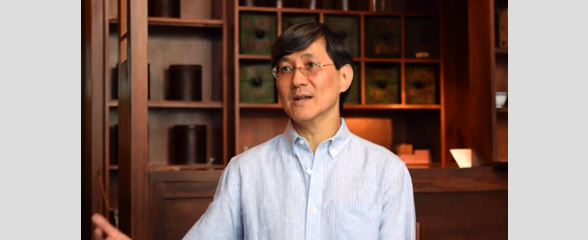 | Richard Wong, later changed to Richard Ong, was born to a paper son who later became naturalized through the Immigration and Nationality Act of 1965. His mother was able to come to America through the War Brides Act of 1945. His family eventually settled in a suburb in East Rockaway New York, where they worked and lived in and behind a laundromat. Richard became a Catholic during his childhood years. He later went on to attend Princeton, describing his suburban upbringing as an experience that has helped him adjust to the predominantly white old-school / old-boys culture. However the suburban experience also seemed to alienate him from the members of the Third World Center, a place where minorities on campus would gather to socialize. While Richard originally majored in the Sciences at Princeton, he soon realize that there was not much room for growth without a PHD in the biotech industry. After briefly exploring a career in management within biotech, he eventually switched to a career in the financial sector once he attended Columbia Business School. He later became a partner with McCowan Associates and joined his current firm, Eagle Capital afterwards. |  | Lawyer turned investment banker Gregory Ho talks about his family journey to Hawaii. He talks about his paternal and maternal great grandparents and the circumstances that led them to Hawaii. He talks about his great grandfather extensive family with his wife and a concubine and the estate dispute that ensured after his death. He goes on to discuss his time at Yale and Columbia and the issues brought on by race while studying. Briefly, he discusses his family Christian faith and how that faith intertwined with their Chinese culture. |  | Philanthropist Diane Woo sits down with MOCA to discuss her family’s illustrious history in the Chinese academic world. She goes on to talk about her life in Hong Kong and later her life in the US, sharing about the many jobs she has had since immigrating. She elaborates on the differences in Chinese and American culture, and remarks on how Chinese fraternities helped her when she first came to the US. She concludes by talking about raising her son and her grandson and how life has been different from when she first immigrated. | 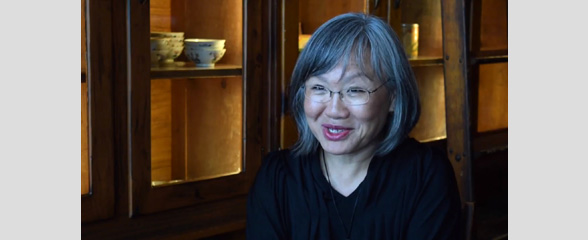 | Long-time MOCA supporter and board member June Jee talks about her grandparents and her early life growing up in Hong Kong. After moving to the US in 1964 she discusses growing up in New York’s Chinatown and her family life in the US. She explores instances of racism and her brushes with the Chinatown gangs. She also talks about her career working at Verizon and her community engagement efforts. The conversation is concluded with her discussing her philanthropic efforts and how she sees the Asian American youth involvement in politics. | 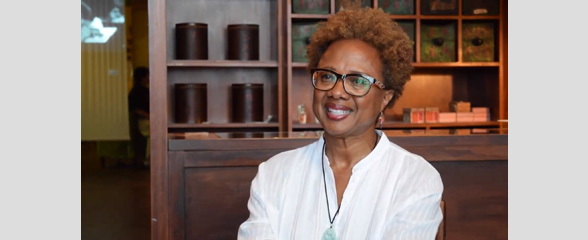 | This oral history focuses on the history of Paula Madison grandfather, Lowe Ding Chow, and her journey to trace her ancestral roots to find and reconnect with her unknown relatives. Paula Madison, former NBC executive vice president of diversity, wanted to uncover her identity through her grandfather history, because she wanted to learn the background of her Jamaican-Chinese heritage. Madison has always had this inherent connection with Samuel Lowe, the grandfather that she had never met, and realized that Lowe also had this overarching connection and influence with her other relatives, specifically her Chinese relatives. Through tracing the steps of her grandfather journey, she was also able to create a family business. Researching Lowe history allowed Madison to come full circle, and reconnect her previously lost family. | 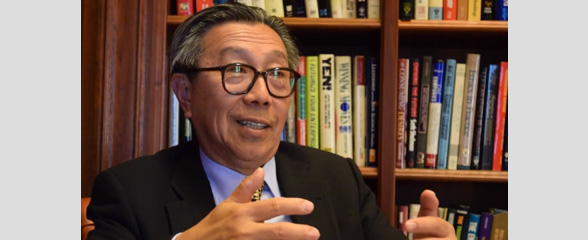 | Investment banker Savio Tung talks about his family life in China and their journey to the US. He talks about his father restaurant in Hong Kong, which went bankrupt and led to him crossing paths with American businessman Cornelius Vander Starr. He talks about how Starr was able to help his family in the US and provide valuable advice and guidance to him growing up. In the US, after going to school he gets a job working for Chase Manhattan bank and has a long time career in banking. | 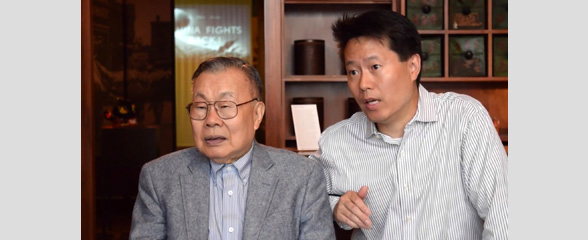 | Edwin Wong and his father has been involved with community work in their personal and professional lives for almost four decades combined. Mr. Wong was born in Burma and has family roots in China, Hong Kong and Canada. When he arrived in New York City he became involved with the Department of Social Services, working as a case worker in neighborhoods in the Bronx and the Lower East Side. On his own time he became involved in local community boards in Queens and also spent his time in Manhattan Chinatown, joining the Wong Family Association as well as the Chinese Community Center. He credits his language skills, knowledge, personality and refusal to keep quiet as positives that helped him get to where he is today, although he also describes some experiences with discrimination and prejudice against Chinese and Chinese Americans, especially during the hiring and promoting process. While Mr. Wong is incredibly dedicated to community work, he makes sure to prioritize the wellbeing of the immediate family first, saying that personal and family needs have to be met before you get involved with the community. He transmits this value to his three sons. Edwin internalizes this lesson, saying that financial and overall stability is needed before community work can be done, although he is actively involved in community groups and boards around his neighborhood of Forest Hills. | 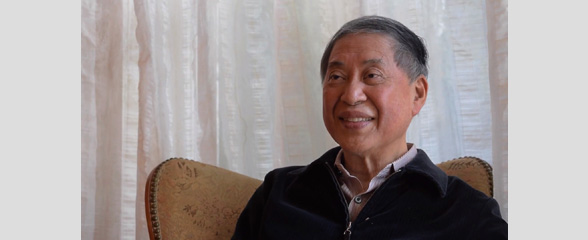 | Writer Kenneth Hsien-Yung Pai talks about his tumultuous childhood living in China during and after the Second Sino-Japanese war. He was diagnosed with Tuberculosis as a child and it affected his views on the world. He discusses his inspirations to become a writer and talks about writing the biography about his father Bai Chongxi, a Kuomintang general. His travels led him to the US at the age of 25 to pursue his studies and eventually becoming a professor at the University of California Santa Barbara. He later returns to China and begins to promote Kun opera and putting together a revival of the play “Peony Pavilion†in 2004. |









